Please click on the map to read more about the consortium
CHANSE, Collaboration of Humanities and Social Sciences in Europe, is a joint initiative of 27 research funding organisations from 24 countries whose goal is to support research in social sciences and humanities.
Austrian Science Fund (FWF)
![]()
The Austrian member of CHANSE is the Fonds zur Förderung der wissenschaftlichen Forschung (Austrian Science Fund, FWF). The Austrian Science Fund is Austria’s central funding organisation for basic research. The purpose of the FWF is to support the ongoing development of Austrian science and basic research at a high international level. In this way, the FWF makes a significant contribution to cultural development, to the advancement of our knowledge-based society, and thus to the creation of value and wealth in Austria. The FWF
assesses the quality of research solely by means of international standards.
The aims of FWF are:
▪ To strengthen Austria’s international performance and capabilities in science and research as well as the country’s attractiveness as a location for high-level scientific activities, primarily by funding top-quality research projects for individuals and teams and by enhancing the competitiveness of Austria’s innovation system and its research facilities;
▪ To develop Austria’s human resources for science and research in both qualitative and quantitative terms based on the principle of research-driven education;
▪ To emphasize and enhance the interactive effects of science and research with all other areas of culture, the economy and society and in particular to increase the acceptance of science and research through concerted public relations activities.
FWF is organised in three divisions and the funding of projects in the field of Humanities and Social Sciences is mainly allocated to the Division of Humanities and Social Sciences.
About 50% of FWF’s budget is spent on individual research grants, about 30% for research networks (Special Research Programme and Joint Research Programmes), the rest being mainly attributed to mobility fellowships and to the promotion of women. Additionally, FWF runs programmes for outstanding researchers (START Programme, Wittgenstein Award). Most funding categories of FWF follow the bottom-up approach, all proposals being subjected to an international peer review process only.
Contact person: Simon Hadler
Email: [email protected]
The Research Foundation – Flanders (FWO)
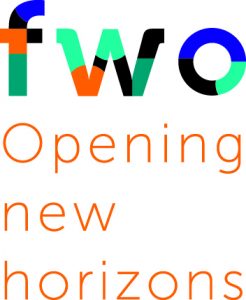
The Research Foundation – Flanders (FWO) is the agency that supports ground-breaking fundamental and strategic research at the universities and research centres of the Flemish Community, within Belgium. The FWO also stimulates cooperation between the Flemish universities and other research institutes.
Contact person: Toon Monbaliu
Email: [email protected]
Fund for Scientific Research (FNRS)
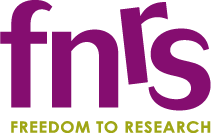
The Fund for Scientific Research – FNRS (F.R.S.-FNRS) is a research funding agency that promotes and supports basic scientific research in the French-speaking Community of Belgium. Founded in 1928, it mainly receives public subsidies, currently from the French-speaking Community of Belgium, the Walloon Region and the Federal Government of Belgium. The Fund supports individual researchers on the basis of the criterion of excellence by offering temporary or permanent positions; funding to research teams; grants and credits for international collaboration and scientific prizes. F.R.S.-FNRS fosters research in all scientific fields, following a bottom-up approach of investigator-driven research. Further, the Fund supports researchers in an ever growing context of internationalisation through facilitating their mobility, allowing for collaborative transnational projects and supporting a high level international working environment. Since October 2008, Dr. Ir. Véronique Halloin is the Secretary-General of F.R.S.-FNRS.
Contact person: Joël Groeneveld
Email: [email protected]
Bulgarian National Science Fund
![]()
Bulgarian National Science Fund is a public institution that supports research projects and programs in all fields of science and humanities on a competitive basis. BNSF initiates and promotes activities contributing to the implementation of ratified framework programs in line
with the priorities and targets set forth in Europe 2020 Strategy and the National Scientific Research Strategy of Republic of Bulgaria. These activities include, but are not limited to:
– Financial support to academic institutions and research institutes for project-based scientific research on a competitive basis by national research competitions;
– Formulation of institutional scientific priority domains and their implementation in national research competitions and research promoting activities;
– Participation in framework programs for research and innovation and transnational joint initiatives;
– Initiation of research competitions for young scientists and promote coordination activities.
Contact person: Milena Aleksandrova
Email: [email protected]
Croatian Academy of Sciences and Arts (HAZU)
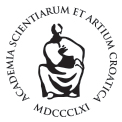
The Croatian Academy of Sciences and Arts is the highest scientific and artistic institution in the Republic of Croatia. It was founded in 1861 by Bishop Josip Juraj Strossmayer. The Academy´s main tasks are to promote and organize scientific research, to develop artistic and cultural activities, to publish the results of scientific research and artistic creation, to make proposals and give opinions on the promotion of sciences and arts in the field which are of special importance to the Republic of Croatia and to develop international relations with other academies and scientific organizations. The Academy has nine departments. Within its structure, it has scientific institutes of different scientific fields, as well as the library, the Strossmayer Gallery of Old Masters, Glyptotheque, the Croatian Museum of Architecture, Department for Prints and Drawings, the Archives, the Oriental Collection, Arboretum Trsteno and the Memorial Collection of Maksimilijan Vanka, Korčula. The Academy has different categories of membership: regular members or fellows of the Academy (up to 160 members), associate members (up to 100) and corresponding members (up to 100 members).
Contact person: Jelena Đukić
Email: [email protected]
Croatian Science Foundation (HRZZ)
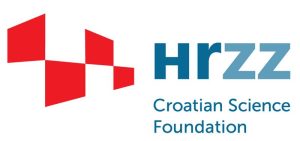
The Croatian Science Foundation (HRZZ) was established by the Croatian Parliament in December 2001. It is the main funding body for competition-based scientific research since July 2013 when the allocation of competitive research grants was transferred from the Ministry of Science and Education of the Republic of Croatia (MSE) to HRZZ. HRZZ’s mission is to promote science, higher education and technological development in Croatia in order to ensure the development of economy and to support employment of scientists. The HRZZ provides support to programmes and projects in the field of research, development and innovation and fosters international cooperation. Foundation also finances Young Researchers’ Career Development Projects – Training of Doctoral Students.
Contact person: Jasminka Boljević
Email: [email protected]
Czech Academy of Sciences (CAS)

Czech Academy of Sciences (CAS) is a key public non-university research performing institution in the Czech Republic’s research, development and innovation system, which comprises a system of 52 research institutes and 2 infrastructure bodies. The CAS’ scientific scope encompasses a wide range of areas. Beside physical, technical, biological and chemical sciences the CAS and its 17 institutes conduct research also in area of social sciences and humanities. The primary mission of the CAS and its institutes is to conduct top-quality research and to advance developments in scientific knowledge at the international level, while also taking into account the specific needs of both the Czech society and the national culture. The supreme self-governing body is the Academy Assembly. The executive body of the CAS is the Academy Council with the President of the CAS at its head. Its permanent advisory body is the Council for Sciences, which deals with the scientific policy of the CAS. These all-academic bodies are elected for four-year periods.
Contact person: Filip Zrno, Klvaňová Alena
Email: [email protected]; [email protected]
Danish Agency for Higher Education and Science (DAFSHE)
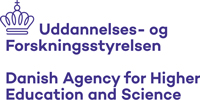
The Danish member of both NORFACE and HERA is the Danish Agency for Higher Education and Science (DAFSHE) in collaboration with Independent Research Fund Denmark | Social Sciences and Independent Research Fund Denmark | Humanities. DAFSHE is an agency under the Danish Ministry of Higher Education and Science. The Agency is handling the following activity areas: Public research funding, researcher mobility, dialogue on priorities in research and technology initiatives, regionalisation of research and innovation, commercialisation of research, interaction between knowledge institutions and the business community, innovation policy, EU research policy, international co-operation on research and innovation, and research dissemination, etc. The Agency also functions as secretariat to Danish Research Coordination Committee, Independent Research Fund Denmark, Danish Research Policy Council, and Danish Committees on Scientific Dishonesty. Independent Research Fund Denmark (DFF) consists of a Board of Directors and five scientific research councils (DFF | Humanities; DFF | Social Sciences; DFF | Medical Sciences; DFF | Natural Sciences; DFF | Technology and Production Sciences). DFF | Social Sciences covers basic research within the following main disciplines: Economics, sociology, political science and jurisprudence, as well as the societal aspects of a number of interdisciplinary areas (e.g. communications studies, development studies, gender studies and cultural geography). DFF | Humanities covers basic research with the following main disciplines: art history, architecture and design, media studies, film studies, musicology, ICT in the Humanities, comparative literature, dramaturgy, philology, linguistics, communication research, anthropology, ethnology, archaeology, history, philosophy, history of ideas and science, theology, comparative religion, educational theory, pedagogy, psychology and other related research disciplines within the humanities, such as library research, museology, as well as humanistic research within sports science, public health, urban and physical planning. The council supports specific research response-mode activities based on the researchers’ own initiatives. Grants are awarded through open competition and the most important criterion of evaluation is scientific excellence. Every year DFF | Social Sciences council evaluates approx. 350 applications for funding and DFF | Humanities
evaluates approx. 400. The council also strengthens dissemination and application of research findings and participates in international collaboration. As part of the funding function, the council can participate in international research co-operation programs involving national transfer of the power to allocate grants based on joint national funding decisions. DFF provides scientific advice in all scientific areas to the Danish Minister for Higher Education and Science, the Danish Parliament and the Danish Government.
Contact person: Katrine Boeriis
Email: [email protected]
Estonian Research Council (ETAG)

The Estonian Research Council (Eesti Teadusagentuur, ETAG), is a governmental foundation, responsible to the Ministry of Education and Research. It was established in 2012 to concentrate the funding of R&D in Estonia. As research funding organisation, ETAG keeps its predecessor’s, the Estonian Science Foundation’s expertise in supporting the most promising high level research initiatives in all fields of basic and applied research including humanities and social sciences. Apart from this, and among other things, ETAG facilitates the international collaboration of Estonian researchers and research organisations. It represents Estonia in international organisations, coordinates participation in international cooperation programmes and supports international cooperation by means of counselling and funding. The Estonian Research Council is responsible for cooperation with Science Europe, participation in Article 185 (BONUS), ERA-NET Cofunds (e.g. BiodivERsA, GENDER-NET Plus and many others) and other international bi- and multi-national cooperation programmes. It has acted as a National Contact Point (NCP) in Framework Programmes, including Horizon Europe, coordinates participation in the COST, and offers counselling of mobile researchers through the EURAXESS network.
Contact person: Carmen Kivistik
Email: [email protected]
Academy of Finland (AKA)
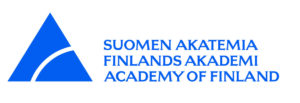
The Academy is an expert organisation in scientific research funding and science policy. Its mission is to finance high-quality scientific research, act as a science and science policy expert, and strengthen the position of science and research. The Academy works to contribute to the renewal, diversification and increasing internationalisation of Finnish research. Its operation covers the full spectrum of scientific disciplines. The Academy of Finland is committed to promoting high-quality and ethically sustainable research; supporting the renewal of research, multi-disciplinarity, new approaches and potential scientific breakthroughs; and reinforcing the role of science in resolving the grand challenges faced by society. The Academy has funding opportunities that provide support for the different stages of the research career as well as for research projects, research programmes, Centres of Excellence in research, foreign visiting professors’ work in Finland, and international networking. The Academy operates within the administrative sector of the Ministry of Education and Culture and is funded through the state budget. Our funding for research amounts to 458 million euros in 2019. Each year, our funding contributes to some 2,700 people’s work (FTEs) at universities and research institutes in Finland. The Academy of Finland is committed to promoting the internationalisation of Finnish science and research. We work closely with key funding agencies in Europe and elsewhere with a view to ensuring that researchers in Finland are in the best possible position to carry out high-quality cooperation with colleagues abroad.
Contact person: Sampsa Kaataja
Email: [email protected]
DLR Project Management Agency on behalf of BMBF
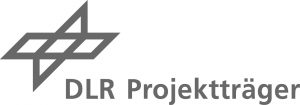
For more than four decades, the DLR Project Management Agency (DLR Projektträger) has been com-mitted to strengthening Germany as a hub of research, education and innovation. As one of the largest project management agencies in Germany, our highly qualified employees currently manage more than 10,000 projects with total annual funds of around 1.4 billion Euros. The DLR project management agency works on behalf of federal ministries, the European Commission, federal states, scientific organisations, foundations and associations. It advises on strategies and programmes, provides scientific, technical and administrative support for funding projects, supports knowledge transfer and the exploitation of project results. Its spectrum of topics ranges from education, equal opportunities, health, society, innovation, key technologies, environment and sustainability to European and international cooperation. The portfolio of the DLR Project Management Agency is enhanced by its Competence Centres for Science Communication, Public Relations as well as for Analysis and Evaluation. The division Society, Innovation, Technology aims at shaping sustainable change in the face of digital change and its profound impact on all areas of life and work. The digital changes value creation models, technological standards and industrial processes just as radically as communication between indi-viduals, forms of participation and access to the world, working conditions and the handling of knowledge. We have been accompanying this change for many years at the research policy level and are using our expertise in the humanities and social sciences as well as engineering to assist in bringing innovation and technology to serve the needs of the people. Cultural Heritage, Industry 4.0, Big Data, High-Performance Computing and Machine Learning – the uniqueness of our socio-technical, interdisci-plinary expertise at DLR-PT is well-matched to the diversity of these topics. Our employees assist with funding programmes that deal with the technical, social and cultural effects of digitalisation and the opportunities created by artificial intelligence. We provide services from a single source by working on socially relevant topics both from the perspective of the humanities and the social sciences as well as from a technological perspective. At the same time, we deal with methodical problems relating to the innovation process and the associated impacts on society. The DLR Project Management Agency is a central pillar of the German Aerospace Center (Deutsches Zentrum für Luft- und Raumfahrt or DLR) and complements its scientific profile. In CHANSE, DLR Project Management Agency works on behalf of the Federal Ministry of Education and Research (BMBF) and implements the objectives of the Framework Programme “Understanding Society – Shaping the Future” which aims at strengthening the humanities and social sciences.
www.geistes-und-sozialwissenschaften-bmbf.de
Contact people:
Christa Engel, Dr.
Gaia di Luzio
Email: [email protected]
National Research, Development and Innovation Office (NKFIH)
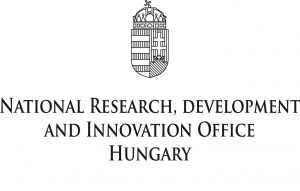
The National Research, Development and Innovation Office (NKFIH) is a governmental body responsible for the establishment and coordination of international and EU cooperation activities in the field of RDI policy. NKFIH is the main RDI funding agency in Hungary and manages the National Research, Development and Innovation Fund (NRDI Fund) to provide state support for research, development and innovation through publishing open calls. NRDI Office has a strategic excellence programme in several areas of FET, such as human
brain research, quantum technologies, and artificial intelligence. It supports the technological development activity of enterprises as well as bilateral mobility of researchers and the implementation of bilateral RDI projects. NKFIH has well-established relations with scientific institutions, universities, companies conducting RDI, technology transfer offices and other stakeholders active in research or innovation and fosters dynamic cooperation between scientific centres and enterprises and creates an inspiring environment for innovation.
It coordinates national government tasks related to the Horizon 2020 Research and Innovation Framework Programme, thus operates the network of National Contact Points and represents Hungary in the strategic decision making Programme Committees of Horizon 2020. NKFIH participates in EUREKA and in various joint programmes of the Member States and the European Commission (AAL, EUROSTARS), as well as joint technology initiatives (e.g. ECSEL) and coordination cooperation activities (ERA-NETs) ensuring national representation and supporting Hungarian participation through calls.
Contact person: Anita Csiszár
Email: [email protected]
The Icelandic Centre for Research (RANNIS)
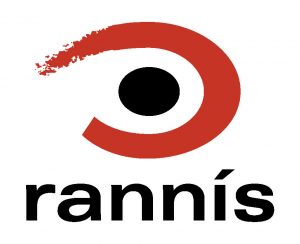
The Icelandic Centre for Research (Rannis) is a governmental institution providing professional assistance to the preparation and implementation of the science and technology policy in Iceland and is responsible for operating the financial support system for research and technical development under the Science and Technology Policy Council. RANNIS operates the competitive financial public support system for research and technological development. RANNIS coordinates and promotes Icelandic participation in international
cooperation in science, education and culture and interacts with corresponding agencies and research councils in other countries. RANNIS promotes public awareness of research and innovation in Iceland.
Contact person: Guðmundur I. Markússon
Email: [email protected]
State Education Development Agency (LZP)
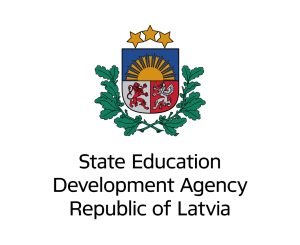
The State Education Development Agency (LZP) is a governmental institution under the direct auspices of the Ministry of Education and Science (MoES). The main tasks of the Agency are Implementation of European Union programmes, structural and financial instruments in the area of education and science. According to the Decision of The Cabinet of Ministers, Republic of Latvia , the Latvian National coordination functions for European Union Research and Innovation programme Horizon2020 as well as functions related to European Research area (ERA) instruments, in particular – ERA-NET, ERA-NET COFUND, Article 185/187 initiatives, have been transferred to the Agency. The Agency is the owner and manager of the National programme „Participation in International Co-operation Programmes in the Fields of Research and Technologies” comprising the Latvian national funding instrument for participation in all ERA-NET and ERA-NET Cofund scheme projects.
Contact people: Maija Bundule, Uldis Berķis
Emails: [email protected] [email protected]
Research Council of Lithuania (RCL)
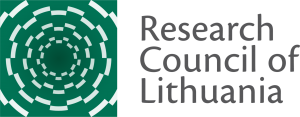
The Research Council of Lithuania (RCL), established in 1991, is a state budget institution that acts as an expert on science policy and as an advisory body to the Parliament of Lithuania and the Government on strategic issues of research and higher education. RCL is a core body of Lithuanian R&D funding system reforms and is entrusted to implement the grant-based research funding. The Council is made of the Board of the Council and two Committees: the Committee of Humanities and Social Sciences and the Committee of Natural and Technical
Sciences. There are 9 Board members and 10 members in each Committee and the chairs of the Committees. The members of RCL are assigned by the decision of the Parliament. The decisions of the Council are implemented by Research Foundation.
Part of RCL work results are in-depth reports on the most important issues of research, the efficiency and quality of R&D policy and higher education. RCL contributes to the science policy formation and is involved in legislative issues of the Lithuanian science and studies system. Major focus is on the development of a scienceoriented society in the context of globalisation and internationalisation. RCL is deeply involved in restructuring research governance and funding mechanisms in Lithuania. RCL is represented by the chairman prof. Romas Baronas.
Contact person: Laura Kostelnickiene
Email: [email protected]
The Luxembourg National Research Fund (FNR)

The Luxembourg National Research Fund (FNR) is the main funder of research activities in Luxembourg. We invest public funds and private donations into research projects in various branches of science and the humanities, with an emphasis on selected core strategic areas. Furthermore, we support and coordinate activities to strengthen the link between science and society and to raise awareness for research. We also advise the Luxembourg government on research policy and strategy.
Contact person: Asaël Rouby
Email: [email protected]
Dutch Research Council (NWO)
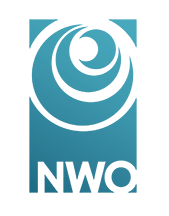
The Dutch Research Council (NWO) is the national research council of the Netherlands and realises quality and innovation in science. Its main task is to fund scientific research at public research institutions in the Netherlands, especially universities. Each year, NWO invests almost 1 billion euros in curiosity-driven research, research related to societal challenges and research infrastructure. NWO selects and funds research proposals based on recommendations from expert scientists and other experts in the Netherlands and abroad. NWO encourages national and international collaboration, invests in large research facilities, facilitates knowledge utilisation and manages research institutes. NWO funds more than 7200 research projects at universities and knowledge institutions.
The NWO domain of Social Sciences and Humanities funds and facilitates research across the social sciences and humanities. The remit of this domain spans such research areas as Archaeology, Business Administration, Communication Sciences, Cultural Anthropology, Cultural Sciences, Demography, Economics, Environmental Studies, Educational Studies, Geography and Planning, Historical Sciences, Law, Linguistics, Literature Studies, Media Studies, Pedagogical Sciences, Philosophy, Public Administration and Political Science, Psychology, Religious Studies, Sociology. Results from projects funded by NWO benefit research, public and civil society organisations and industry.
NWO is a partner in the CHANSE consortium, but it does not participate as a funding partner in the Call for Proposals. This implies that researchers based in the Netherlands cannot apply for funding in the CHANSE call. Participation in a transnational CHANSE project proposal is possible as a “cooperation partner”, both for academic and non-academic partners.
Contact people: Sander Steeman, Alice Dijkstra
Emails: [email protected] [email protected]
The Research Council of Norway (RCN)

The Research Council of Norway (RCN) is the national strategic and funding agency for research activities. RCN is a chief source of advice on and input into research policy for the Norwegian Government, the central government administration and the overall research community. An important objective is to ensure that Norway adequately invests in research and development (R&D) activities. It is the task of the RCN to identify Norway’s research needs and recommend national priorities. Using targeted funding schemes, the Council helps to translate national research policy goals into action. The Research Council works to enhance financial and quality targets in Norwegian research and innovation activities. The Council also works to design a sound underlying structure for the research system and develop new forms of interaction between the research community, trade and industry and the public administration. The Research Council provides a central meeting place for researchers, and actively promotes the internationalization of Norwegian research. RCN has some 500 employees. We invest NOK 10 billion in research and innovation annually on behalf of the Norwegian government.The Ministry of Education and Research and the Ministry of Trade and Industry are the most important contributors to the budget of RCN.
Contact people: Christian Lund, Siv Haugan
Emails: [email protected]; [email protected]
National Science Centre, Poland (NCN)
![]()
The National Science Centre (Narodowe Centrum Nauki, NCN) is a Polish government executive agency set up in 2010 to fund basic research. The primary task of the Centre is to support research projects. The Centre fulfils its duties by catering for the needs of researchers at every stage of their research career and with different degrees of expertise. It finances basic research carried out in the form research projects, scholarships for PhD students and post-doc internships. To ensure the excellent quality of the research selected for funding, the Centre has adopted a two-stage, peer review-based procedure of proposal evaluation. One important task of the Centre is to foster international cooperation in research and disseminate information on calls for proposals among researchers. The NCN also supports and monitors the progress of research projects financed under its funding opportunities through review and examination of annual and final reports, as well as on-site visits to selected host institutions.
Contact people: Malwina Gębalska, Katarzyna Wincenciak
Email: [email protected]
Executive Agency for Financing Higher Education, Research, Development and Innovation Funding (UEFISCDI)

The Executive Agency for Higher Education, Research, Development and Innovation Funding (UEFISCDI) is a public entity of the Central Administration under the ultimate authority of Ministry of Education and Research. UEFISCDI reached the current status in July 2010, through GO nr.62/1999, approved with amendments by Law 74/2010 and GEO nr.150/2000 by merging three organisations with responsibilities for the management and administration of various programs in the fields of higher education, research, development and innovation:
Executive Agency for Higher Education and Research Funding (UEFISCSU), National Centre for Programme Management (CNMP), Management Agency for Research, Innovation and Technology Transfer (AMCSIT). UEFISCDI implemented, under the supervision of its advisory councils, four out of the six programs of the National Plan for Research, Development and Innovation 2007 – 2013 (PN II), i.e.: Human Resources (exploratory research), Ideas (exploratory research), Partnerships in Priority S&T Areas (applied research), Innovation (innovation and technology transfer).
Also UEFISCDI implements, under the supervision of its advisory councils, four out of the five programs of the National Plan for Research, Development and Innovation 2015 – 2020 (PN III), i.e.: Program 1: Development of the national R&D (1.1. Human Resources (full); 1.3. Infrastructures R&D (partially); 1.4. Support (partially); Program 2: Increasing the competitiveness of the romanian economy through research, development and
innovation (2.1. Competitivity through research, development and innovation (partially)); Program 3: European and international cooperation (3.1. Bilateral / multilateral (excluding the bilateral program with AUF); 3.2. Horizon 2020 (full); 3.5. Other European and international initiatives and programs (full); 3.6. Support (partially));
Program 4: Basic research and frontier (full).
Externally, UEFISCDI acts for the promotion of Romanian R&D and its integration in the international scientific community, by: • Cooperating with similar organizations in Europe and worldwide
• Supporting to Romanian R&D actors to develop international partnerships.
UEFISCDI is involved in over 40 international projects, most of them under ERA-NET Scheme FP7/ H2020 and
UEFISCDI has strategic partnerships & cooperation agreements with the following organizations:
• European Science Foundation – ESF
• Swiss National Science Foundation – SNSF
• L’Agence nationale de la recherché – ANR
• Deutsche Forschungsgemeinschaft – DFG
• National Science Foundation – NSF, USA
• Netherlands Organization for Scientific Research.
UEFISCDI is member of different European associations (EARMA, EARTO), offers support to SMEs by EUREKA, EUROSTARS, and administrates the Romanian participation to the Joint Technology initiatives – JTI/JU (ENIAC, Artemis, Clean Sky, Fuel Cells, IMI).
Contact person: Nicoleta Dumitrache
Email: [email protected]
Slovak Academy of Sciences (SAS)
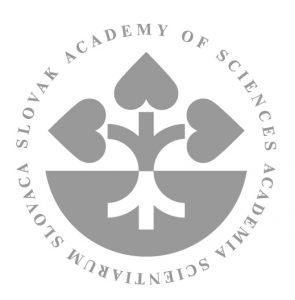
The Slovak Academy of Sciences is a public research performing and research funding organization. It is recognized as leading research and scientific institution aimed at excellent basic, strategic and applied research in Slovakia. The SAS, as a funding body, supports those scientific disciplines which have attained international level and which are deemed necessary for the advancement of Slovakia. It consists of 48 organizations (45 research organizations,
one service organisation, central office, and the SAS Central Library). Governing bodies are the Assembly, the Scientific Council, and the Presidium. The SAS governs the total budget of more than 80 M Euro. A part of the budget is reserved for international research cooperation within the schemes such as ERA-Net, Horizon 2020, COST, ESA or bilateral activities etc.
The SAS supports inter- and multidisciplinary research and collaboration with research teams at universities and with the industry. SAS is the only institution in Slovakia with systematic approach to the involvement of its researchers and institutes into ERA.NET scheme (FP7 and Horizon 2020). SAS joined HERA network in 2016.
Contact person: Zuzana Panisová
Email: [email protected]
Ministry of Higher Education, Science and Innovation (MVZI)

Ministrstvo za Visoko Solstvo, Znanost in Inovacije (MVZI); the Ministry of Higher Education, Science and Innovation from the Republic of Slovenia focuses on the quality development of higher education, the transfer of knowledge into practice for the development of society as a whole, and the creation of a stimulating environment for science and innovation. Its goal is for Slovenia to become a country of knowledge, science and innovation and to be recognised as such around the world.
Contact person: Davor Kozmus
Email: [email protected]
Slovenian Research and Innovation Agency (ARIS)
The Slovenian Research Agency (ARIS) was established by the Government of the Republic of Slovenia and became fully operative in October 2004. The ARIS is the main public funding body of scientific research in the Republic of Slovenia. It performs professional, development and executive tasks in the public interest related to the National Research and Development Programme, providing permanent, professional and independent decision making on the selection of programmes and projects financed from the state budget.
The main tasks of the ARIS are:
• to provide framework for scientific research within the national budget and other sources;
• to promote high quality scientific research in Slovenia and its application;
• to foster internationally comparable evaluation standards in Slovenia;
• to provide the transparency of organising research community in Slovenia;
• to promote international research co-operation; and
• to analyse R&D activities and provide science policy expertise.
The ARIS co-finances research and development activities from the state budget across all scientific domains with no thematic restrictions.
Contact person: Urša Novak
Email: [email protected]
The State Research Agency (AEI)
![]()
The State Research Agency (AEI) is a public funding agency created by a Royal Decree in November 2015, under the authority of the Ministry of Science and Innovation (MICINN). The AEI is responsible for the management of the State programmes and the strategic actions of the National Plan for Scientific and Technical Research and for Innovation 2021-2023 (PEICTI). All these Plan actions are performed under the Spanish Strategy of Science, Technology and Innovation 2021-2027
The AEI’s mission is the management, evaluation, financing and monitoring technical research actions intended to generate, exchange and exploit knowledge, as fostered by the MICINN. The AEI’s objectives comprise the fostering of scientific and technical research in all areas of knowledge through the efficient allocation of public resources, the promotion of excellence, duly encouraging cooperation between actors of the Spanish System for Science, Technology and Innovation and providing support for generating high impact scientific and technical, economic and social knowledge, including the most serious societal challenges.
The AEI has established agreements with other public or private, national or international entities/bodies, in order to promote the R&D and innovation within the implicit range of its purpose and objectives.”
Contact people: Jessica Illera Clavijo, Juan Francisco Climent Blasco
Email: [email protected]
Forte, The Swedish Research Council for Health, Working Life and Welfare (FORTE)

Forte is a public Swedish research council. On behalf of the government we initiate and finance research in the areas of health, working life and welfare. We evaluate the effects of research and how the results can be translated into practice, as well as working actively with dissemination of knowledge. Forte creates meeting places where research and the future are the central focus. Forte distributes around 700 million Swedish kronor every year to both basic and needs-driven research. This ranges from individual project grants to larger efforts to build world-class research environments. Forte also distributes funds with the aim of stimulating international research collaborations, both within the EU and worldwide.
Swiss National Science Foundation (SNSF)

Based on a government mandate, the Swiss National Science Foundation (SNSF) supports scientific research in all academic disciplines, from social sciences and the humanities to medicine and the engineering sciences. At the end of 2019, the SNSF was funding 5750 projects involving 18,900 researchers, which makes it the leading Swiss institution for promoting scientific research.
To ensure its independence, the SNSF was established as a private foundation in 1952. Its core task is the evaluation of research proposals. In 2019, it awarded CHF 1056 million to the most promising project proposals. By allocating public research money based on the principle of competition, the SNSF contributes to the high quality of research in Switzerland
The SNSF is currently organised in four divisions (Humanities and Social Sciences; Mathematics, Natural and Engineering Sciences; Biology and Medicine; Programmes). Furthermore, Specialised Committees are responsible for careers, interdisciplinary research and international co-operation. The Presiding Board consists of the president of the Research Council and the presidents of the divisions and specialized committees.
Contact people: Daniel Krämer, Marie Guyaz del Aguila
Emails: [email protected] [email protected]
United Kingdom Research and Innovation – Economic and Social Research Council & Arts and Humanities Research Council (UKRI)
UKRI works in partnership with universities, research organisations, businesses, charities, and government to create the best possible environment for research and innovation to flourish. It aims to maximise the contribution of each of our component parts, working individually and collectively. It works with our many partners to benefit everyone through knowledge, talent and ideas. UKRI operates across the whole of the UK with a combined budget of more than £7 billion. It brings together the seven research councils (including ESRC and AHRC), Innovate UK and Research England.
Contact people: Joe Ellery (ESRC), Jamie Davies, Dr. (AHRC)
Email: [email protected]





















